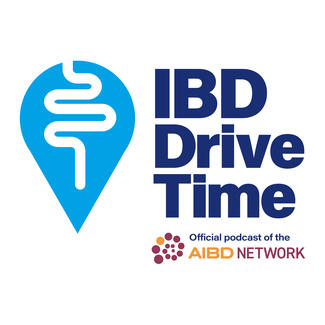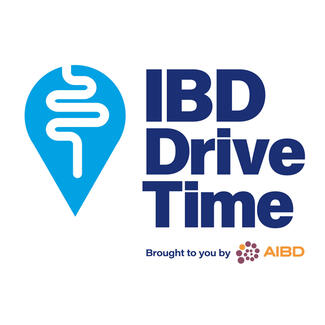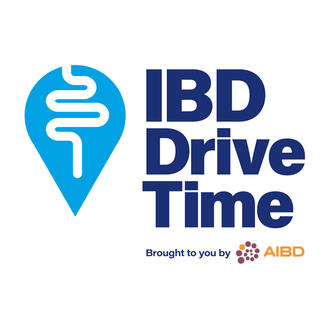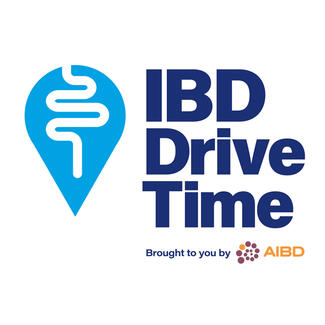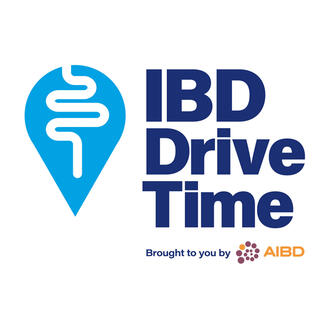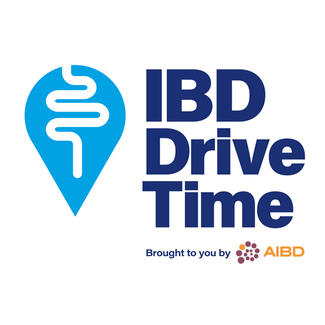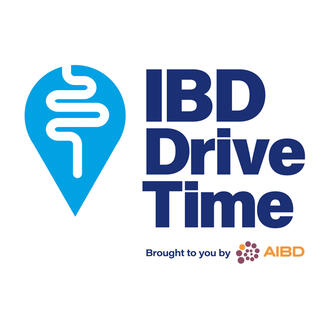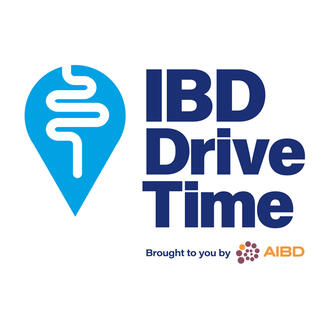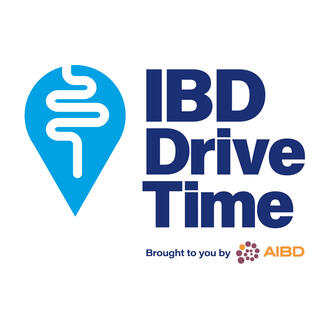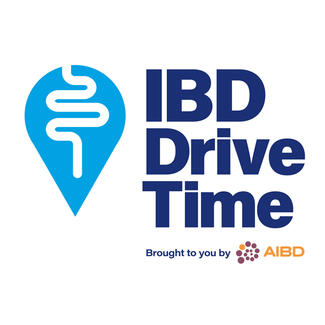Drs Sara Horst and Jordan Axelrad Review Studies on Infection, Malignancy With IBD Therapies
Guest host Sara Horst, MD, talks with Dr Jordan Axelrad about two studies on safety of advanced therapies for inflammatory bowel disease, including risks of infection and malignancy.
Sara N Horst, MD, MPH, is a professor of medicine in the Division of Gastroenterology, Hepatology and Nutrition at Vanderbilt University in Nashville, Tennessee. Jordan Axelrad, MD, is an associate professor at the NYU Grossman School of Medicine and codirector of the Inflammatory Bowel Disease Center at NYU Langone Health in New York City.
Hello, everyone, I'm Sara Horst, and I'm guest hosting IBD Drive Time, which is sponsored by the AIBD Network. I'm really excited I got to meet up with Dr. Jordan Axelrad today. We are at DDW 2025. And I'm really excited to talk to him about the work that he's been doing. So just to remind everyone, Dr. Axelrad is an associate professor at NYU Grossman School of Medicine and the codirector of the inflammatory bowel disease center there. He's been doing a lot of really important active epidemiologic research around the care of patients with inflammatory bowel disease, especially around complications, including risk of infection and malignancies.
He's also the 2024 Emerging Leader Sherman Prize winner. So thank you so much for coming today. I'm really excited to talk about some of the work that you've been doing. And I really wanted to dig into a few studies that you've led recently. So first, I want to chat about the study that you presented as an oral presentation at DDW 2025. And the title of the presentation was “Risk of serious and opportunistic infection in patients with ulcerative colitis treated with biologic and small molecule therapies in nationwide cohort study.” This sounds really exciting. So I want you to tell us a little bit about maybe the study design and the results.
Dr Axelrad: Yeah, so this was a study that was done using nationwide data from Sweden, where we looked at all patients with IBD who were exposed to IBD therapies and we looked at those risks compared to the general population in a matched cohort and also to a propensity score matched model with patients compared to each other initiating various advanced IBD therapies.
So in this study, we were able to specifically look at risk attributable to IBD itself and specific IBD therapies, including immunomodulators, anti -TNF therapy, combination immunomodulator with an anti -TNF, ustekinumab, vedolizumab, and tofacitinib, compared to a non-IBD unexposed population and compared to a propensity score matched model where patients compared to each other initiating these various therapies.
So, the main take-homes were that patients with IBD had a nearly 2-fold increased risk of serious and opportunistic infection compared to an unexposed immunomodulator advanced therapy naive group. And those exposed to advanced therapies had a nearly 4- to 5-fold increased risk of serious and opportunistic infections compared to the general population. But when we propensity score match patients to each other by important factors that are associated with infection risk, including corticosteroid exposure, previous advanced therapy exposures, disease duration, et cetera, we found that there was no risk difference between advanced IBD therapies compared to each other in ulcerative colitis patients initiating therapies.
Also at this meeting, I should mention my colleague Anders Forss is presenting data on Crohn's disease, essentially showing the same findings.
Dr Horst: That's so important. And so I think it's really interesting to understand this a little bit more, look at it from a really large population-based study. And then super importantly, not only just look at sort of absolute differences or relatives, but also about the risk factors for infection themselves. So that propensity score matching sounds really important.
Was there anything–I think a lot of the questions that we get as, you know, for patients and maybe if colleagues are asking us—what about age? I sort of think, you know, there's not a lot of data out there, but some, there is some, you know, concern that there's an increased risk for infection and someone who might be older than 60, older than 65?
Dr Axelrad: Yeah. So as you kind of alluded to, the number one question patients generally ask us in the office is not how well is this medication going to work for me or how quickly is it going to work for me—it’s “Is this medication going to give me an infection? What is the side effects from these medicines?” So hopefully this is able to provide some context especially in not just comparing to a general non-IBD population but also other IBD patients.
Age was very interesting. And what we found was that the relative risk of infection was actually substantially elevated for the pediatric population. So for patients less than age 18, relative risks were substantially elevated. Whereas in the elderly population, who at baseline will have an elevated risk for infection, the relative risks for serious and opportunistic infection for various therapies were only slightly elevated compared to the general population of the same age. So again, we probably underappreciate the relative risk of infection in the pediatric population, whom we intuit are a little healthier. And we may be overthinking about the infection risks relatively in the older elderly population, those over the age of 60.
Dr Horst: It's really important. I think as a gastroenterologist who takes care of patients with inflammatory bowel disease, when I have someone who's over 60, you know, trying to figure out the best medication for them is sometimes difficult. And I do think I probably a little less so now with increasing data, but I have had a little bit of hesitancy about something like an anti-TNF, but your data suggests that really, we need to treat them according to the severity of their disease and have a little less concern at least about that risk of infection. Would you think that's a good…
Dr Axelrad: Yeah, no, I agree. And I think the risk attributable to the medications, especially in the elderly population, is much smaller than what we're seeing in other age groups. So I think that's really important to think about because if a patient has severe disease and you need to use an anti-TNF or even a JAK inhibitor, for example, that these data can provide some use that you're not substantially elevating their infection risk compared to an unexposed age match population.
Dr Horst: Super important, and did you have, I mean, it sounds like you were able to look a little bit at tofacitinib as far as the JAK inhibitor class. It might be a little limited in the number of patients you had, but did you see any signal there at all?
Dr Axelrad: Yeah, so we didn't see a specific signal for tofacitinib uniquely. There were fewer exposures, and then of course in the propensity score matched model, there were even fewer exposures because trying to get an appropriate population there to examine comparators. But we saw no unique signal for JAK inhibitors, particularly again, comparing patients within the same age strata. You know, yes, there was an increased risk, but that risk was not substantially more elevated. Certainly for the pediatric population, it was.
Dr Horst: Which is so interesting. And I think rather underappreciated, probably we need to think about this a little bit more, the fact that you found such an increased risk in that pediatric population for infection. I don't know that I understand, do you have any thoughts around the biologic plausibility? Why is this happening?
Dr Axelrad: Yeah. No, it's a good question. I think that probably, you know, a child with newly diagnosed inflammatory bowel disease or ulcerative colitis is probably actually a much sicker individual than a 65 -year -old who's recently diagnosed with ulcerative colitis, I think very different phenotypes for different disease activities and of course disease severities. So I think that really impacts infection risk. And so having a more robust, aggressive disease, there's going to be an elevated infection risk. And I think the medications in that setting in the pediatric population probably add more attributable risk than, for example, who is less sick from their IBD in the elderly population.
Dr Horst: Yeah, it's fascinating.
In general, do you have any, has this changed your practice? To me, it's very reassuring that at least as far as risk of infection, that one medication did not seem to have an attributable risk over another medication. And I think that this is data I'll use and talk to my patients about. And so I think that's really important. Is there anything else that you took out of this when you think about general risk of infection? Maybe how do you talk to your patients about this? And what should we take away?
Dr Axelrad: Yeah, so I think overall absolute risks of infection were low. So that's what's really important, I think overall, is that patients are concerned that every time they're going to take their injection or go for their infusion they're going to be sick for days and weeks because of infections they're going to pick up. I think the answer to that is that the risk overall in absolute numbers is quite low. The relative risk is really mediated by your individual background and age.
What was reassuring about the data—and there was some conflicting previous data that wasn't able to be appropriately propensity score matched— but what's reassuring about these data is that in a really well-matched comparator population, you're not risking something by choosing an appropriate therapy. So I think that that's what's really important. If you're trying to avoid the presumed background risk for example of, a JAK inhibitor, and you're going to choose something that you think may be medically less effective, that trade-off, you may need to think about again. And you're not necessarily exposing a patient to increased infection risks by choosing one drug over another in this cohort.
So I think that's what's really important than in terms of counseling, just reminding patients low overall absolute risk. Yes, you have an elevated risk, but the IBD itself is causing a large part of that risk. And really disease activity and background also mediates a lot of that risk, irrespective of the therapeutic exposure.
Dr Horst: So get on the advanced therapy that we think is the most efficacious for the patient for their disease and their phenotype and this risk of infection between medications just may not really, that relative risk may not be there as much. So that was really important. So thank you for putting that together.
The second paper that I wanted to talk to you about was the results of the SAPPHIRE registry that you have really been leading and working on that was just published in Clinical Gastroenterology and Hepatology—and I think it was in an interim analysis, right?— looking at the risk of malignancy in patients with inflammatory bowel disease on immunosuppressive therapy. It's such an important topic. Our patients ask about it all the time. So I'd love for you to tell us a little bit about that.
Dr Axelrad: Yeah, so this is another study really focused on risk in patients with IBD, right? So we just talked about how patients really are so worried about infections. And then the next most common question from patients is, are these drugs going to give me cancer?
And so the SAPPHIRE study, we actually started many years ago. This is a multicenter study that I'm working on with my colleague, Dr. Steven Itzkowitz from Mount Sinai. And this is a longstanding registry that's following patients with newly diagnosed cancers to assess what IBD therapies they're being exposed to following their cancer diagnosis and whether they're at risk for new or recurrent cancers.
So we looked at all cancers. So there's some limitations in this study. And again, this population was only a couple of hundred. So we really need tens of thousands of patients to make useful, precise estimations for individual cancers. But overall, what we found were that generally speaking, in patients who have a history of cancer of all different types, individual therapies didn't seem to increase the risk for new or recurrent cancer compared to each other. So this provided, again, some reassuring safety data that in a very high risk population who already have a cancer history, that IBD therapies didn't seem to compound that risk in terms of new or recurrent cancers. With the major caveats that we have limited population, we weren't able to look cancer types, let alone, you know, molecular subtypes, for example. But in this very high-risk population, IBD therapies, specifically the ones that we care about, like anti-TNF therapies, like JAK inhibitors, didn't seem to really increase that risk for new or recurring cancers.
Dr Horst: Super important. I mean, I do think that is a group of patients who we may not see as much, thankfully. But when we do, and they're sick, you know, trying to make sure that we're getting them on the appropriate therapy and not increasing their risk of subsequent malignancy is very reassuring. I think for me, I still try to talk, that tends to be a multidisciplinary discussion, right? I do try to get the oncologist involved, if that's been somewhat recently, but I think this is really reassuring as well. And is this ongoing? Tell us a little bit more about what's happening next.
Dr Axelrad: So, SAPPHIRE is continuing. We're actually looking to study patients who have any diagnosis of cancer within the past 10 years, actually, as a first diagnosis—they do not yet have a second or recurrent cancer—that can be enrolled in SAPPHIRE. And,we are now going to be also studying patients through their cancer diagnoses. So the,future for SAPPHIRE is that are we going to be examining patients who have a history of cancer within the past 10 years and following them for IBD therapeutic exposures, but we're also going to be studying patients who get newly diagnosed and studying them through what types of cancer treatment they get and what types of IBD therapies they get and how that influences IBD activity and IBD outcomes and cancer outcomes as well.
Dr Horst: Super important. It's so exciting to hear about that. We definitely need more data as newer therapies or cancer treatments and checkpoint inhibitors and all this is coming out and our patients are experiencing this, understanding how we should treat them is really, really important.
Dr Axelrad; Yeah, and remembering that the IBD population overall, we just talked about age being a huge factor here in certain risk estimates. The IBD population is aging, cancer is extremely common, more patients are going to be developing cancer. So understanding how to manage patients through their cancer and after their cancer is going to become increasingly important.
Dr Horst: So fantastic. Well, Jordan, thank you so much for coming and meeting up with me at the meeting and chatting through this. We really appreciate it and looking forward to future discussions.
Dr Axelrad: Thanks, Sara.








